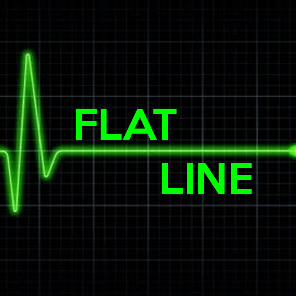Coaching Leadership (2×2 days)
As a manager or team leader, your performance is largely determined by your motivations...
That is what many sellers wonder. In other words when will I get success! To what extent do you recognize yourself in the next course of an acquisition process?

Beginning of contact: “I managed to get that appointment done nicely.”
First meeting: “I was able to explain clearly what we can do for the prospect. I can even put everything in a quote. I think there is a good chance of a positive follow-up.”
Quotation: “I have put all the benefits of our product completely on paper and sent them by email.”
Nabel: “My prospective customer is difficult to reach, but when I get him on the phone… “

Do you, as a seller, already feel that the above acquisition process will not quickly lead to a sustainable relationship? In the best case scenario, the order will still be pushed through, but there is a greater chance that the prospect will disappear into a 'witness protection program'. Many salespeople have the experience that a prospect is no longer available after an initial conversation and/or quotation and then wonders; where did it go wrong? Do you recognize this?
In training courses we regularly meet salespeople who are so eager to deliver their product or service that they quickly think they know what a conversation partner needs in a first conversation and/or are happy to provide it. What they don't realize is that, especially in those conversations, they completely miss the point. Sometimes this is due to enthusiasm or because they are so used to it. Many salespeople believe that talking a lot reduces the chance of rejection. The reality is that they put off potential customers due to an “overload” of information.
We frequently use role plays in our training. In fact; We usually start with this and we can therefore give sellers a good experience of where they go off the rails - often with the best intentions.
The camera records flawlessly. An example of the many examples we could cite.
The prospect asks: “Hey, do you still send those installation manuals with your product?”
The seller answers very enthusiastically and proudly with: “Yes, certainly”.
To which the customer responds: “Oh, because I think those manuals are really worthless!”.
To leave an initially enthusiastic seller speechless and with the feeling that he has to come back from a 1-0 deficit.
In the debriefing it becomes clear that the salesperson could have kept the situation neutral by deliberately asking an open question and by subsequently asking in-depth questions he could have identified the (unconscious) needs of his conversation partner.
Let's see how the conversation might have gone
Prospect: “Hey, those manuals. Do you still send them with the products?”
Salesperson: “Where does your question come from?”
P: “I think they're worthless.”
Q: “What would you like to see different?”
P: “That they contain much clearer illustrations.”
Q: “What do you mean by clearer illustrations?”
P: “That my technicians, who cannot read Dutch, can quickly follow the visual instructions and can therefore move on to the next job in a timely manner.”
Q: “Why is that important to you?”
P: “Time is money and I would like to make a return… “
Although this is of course only a small part of a conversation, you have noted an initial need (a clear visual instruction in an assembly manual) and heard a statement that points to an unconscious motivation (Profit type after CG Jung). If, by having a conversation in this way, with many open and in-depth questions, you can note more wishes and validate the unconscious motivation of your conversation partner, you can conclude the conversation much more effectively later on. This means you are much less likely to end up in the situation where you have to call prospects endlessly; the order is already in the bag.
In addition, we and our participants notice that it is so much more satisfying when you really find out what your prospect's needs are by having a professional conversation. And the picture is complete when you can subsequently ensure that that need is actually met. Then you deliver value and you are valued.
So it all starts with 'what's in it for you!'
What conclusion can you draw from the foregoing?:
These conclusions follow naturally if you believe in Zig Ziglar's statement:
“You can have everything in life you want, if you will just help other people get what they want.”
We are curious about your experiences, do you recognize the above? Share it on our website!